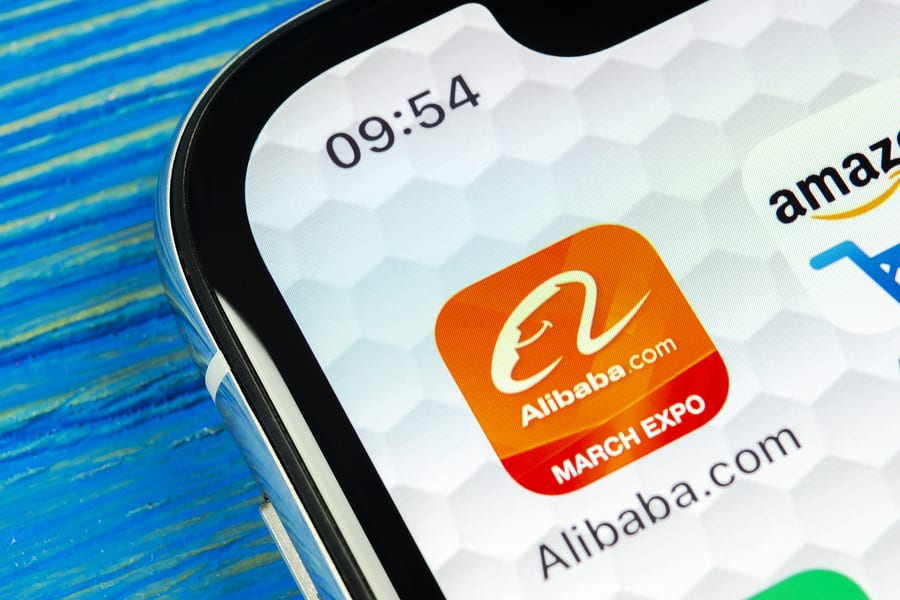Step Aside, Amazon: Alibaba Statistics Prove It’s the Emperor of Ecommerce

Alibaba, a digital shopping conglomerate out of China, has been expanding rapidly in recent years. Lately, the platform has been posting record numbers, shattering Black Friday and Cyber Monday sales combined in recent reports in one-day sales events.
As it stands now, Alibaba is commonly referred to as the “Chinese Amazon.” Although there are some unique differences between the two, Alibaba is a fast-growing platform that has the potential to give Amazon a serious run for its money in coming years.
Here’s what you need to know about the recent success of the Alibaba platform, and how it stands to grow in the coming years:
What is Alibaba?
Alibaba Group Holding Limited is a Chinese multinational conglomerate that specializes in AI, technology, retail, internet and ecommerce. Built on a consumer-to-consumer model, Alibaba also specializes in B2C and B2B sales services, as well as offering electronic payment services, cloud computing and a shopping search engine.
Named one of the world’s most admired companies by Fortune, Alibaba claimed the world’s highest IPO – sitting right around $25 billion. By June of 2018, the market value of the platform had grown to $542 billion, and it has been growing ever science. Currently, Alibaba is one of the world’s top 10 most valuable companies and is only the second Asian company to break the value cap of $500 billion USD.
Alibaba operates in more than 200 countries and territories, and is the world’s single largest online marketplace, as well as being one of the largest internet and AI companies and one of the largest VC firms in the world. Its online sales have surpassed all US retailers (including eBay, Amazon, and Walmart) combined since 2015.
In November of 2017, Alibaba orchestrated “Singles Day” in china, and claimed the world’s largest single-day online and offline shopping revenues, with sales reaching $25.4 billion.
2018 Alibaba Statistics to Chew On
Wondering about the Alibaba vs. Amazon comparison? While Alibaba launched in 1999, it’s quickly catching up to Amazon. Here are some statistics about Alibaba to keep you busy:
- Alibaba has upwards of 552 million shoppers and about 634 million monthly active mobile users.
- Alibaba boasts a 60% share of the Chinese ecommerce market.
- Alibaba’s cloud customers top 1 million.
- Ant Financial, an Alibaba spin-off established in 2011, has a reported market value of $100 billion and reaches about 520 million people annually.
- In FY of 2018, Alibaba has generated almost $40 billion in revenue.
- Alibaba’s FY 2018 core commerce revenue sits at $8.1 billion.
- Alibaba’s Singles’ Day revenue was $25.3 billion in 2017, which represents a 40% increase in the sales from the year before. These numbers did not take into account some sales that began earlier in the week and were designed to celebrate the event.
- The retailer also hit a record 18 billion in 13 hours on one of its single-day shopping events.
- Market research experts currently believe that the exponential growth of Alibaba is attributed to retailers who are actively competing for their share of consumer spending in China’s growing economy.
- During shopping holidays (designed largely to compete with Amazon’s Prime Day), Alibaba offers discounts on a wide selection of goods, including household items and electronics.
- Alibaba ships over 12 million packages to customers daily, as compared to Amazon, which ships 3 million.
Alibaba vs. Amazon
In recent years, there’s been some not-so-friendly competition between Amazon and Alibaba. In 2017, the CEO of Alibaba requested that people not compare the platform to Amazon because “it’s much bigger.” In the 12 months between 2016 and 2017, Alibaba partnered with global marketers such as P&G, Unilever and L’Oreal to develop a system it calls Uni-Marketing, which utilizes a data-driven marketing engine to support more than 500 million active shoppers.
Part of what contributes to Alibaba’s stunning success is its multidimensional approach to marketing. The platform offers video sites, social media (the Chinese version of Twitter is called Weibo), location-based navigation services similar to Google Maps and a wide selection of data services.
While it’s true that Amazon and Alibaba do go head-to-head on many things, it’s also true that Alibaba reaches a bit further than Amazon does, even on the best of days. Thanks in large part to its consumer-to-consumer marketplace known as Taobao, it’s B2C T-Mall, all the company’s various B2B services, as well as its messaging, cloud computing, social media, and map offerings, Alibaba has stood out as a much more comprehensive and further-reaching platform than Amazon in recent years.
At its core, the business model of Alibaba is just different than Amazon’s. The company doesn’t buy products from brands, it doesn’t buy and sell and then take a margin, and it doesn’t work as a channel the same way Amazon does. Instead, Alibaba operates as a marketplace – a bridge that connects sellers and buyers.
Because of this, many analysts are recommending that people think of Alibaba as a marriage between Amazon, Facebook and Google. It’s a powerful platform that has dominated ecommerce in China, and is rapidly becoming number one in countries like Russia and throughout Southeast Asia.
These results show no signs of slowing anytime soon, and it’s likely that Alibaba will only continue to grow in coming years.
The Future of Alibaba
A master of ecommerce, Alibaba has dominated cross-channel commerce throughout China, and is rapidly expanding into neighboring countries. A powerful platform with lots to offer, Alibaba is one of the most exciting tech companies out there and promises to remain so in the years to come. While Amazon remains the number one ecommerce platform in the United States, Alibaba is an expansive, exciting, customer-facing marketplace that has positioned itself for global shopping domination and plans to achieve it in the near future.
Need even more 2018 Alibaba statistics? We’ve got you covered with this infographic!

Share On:








